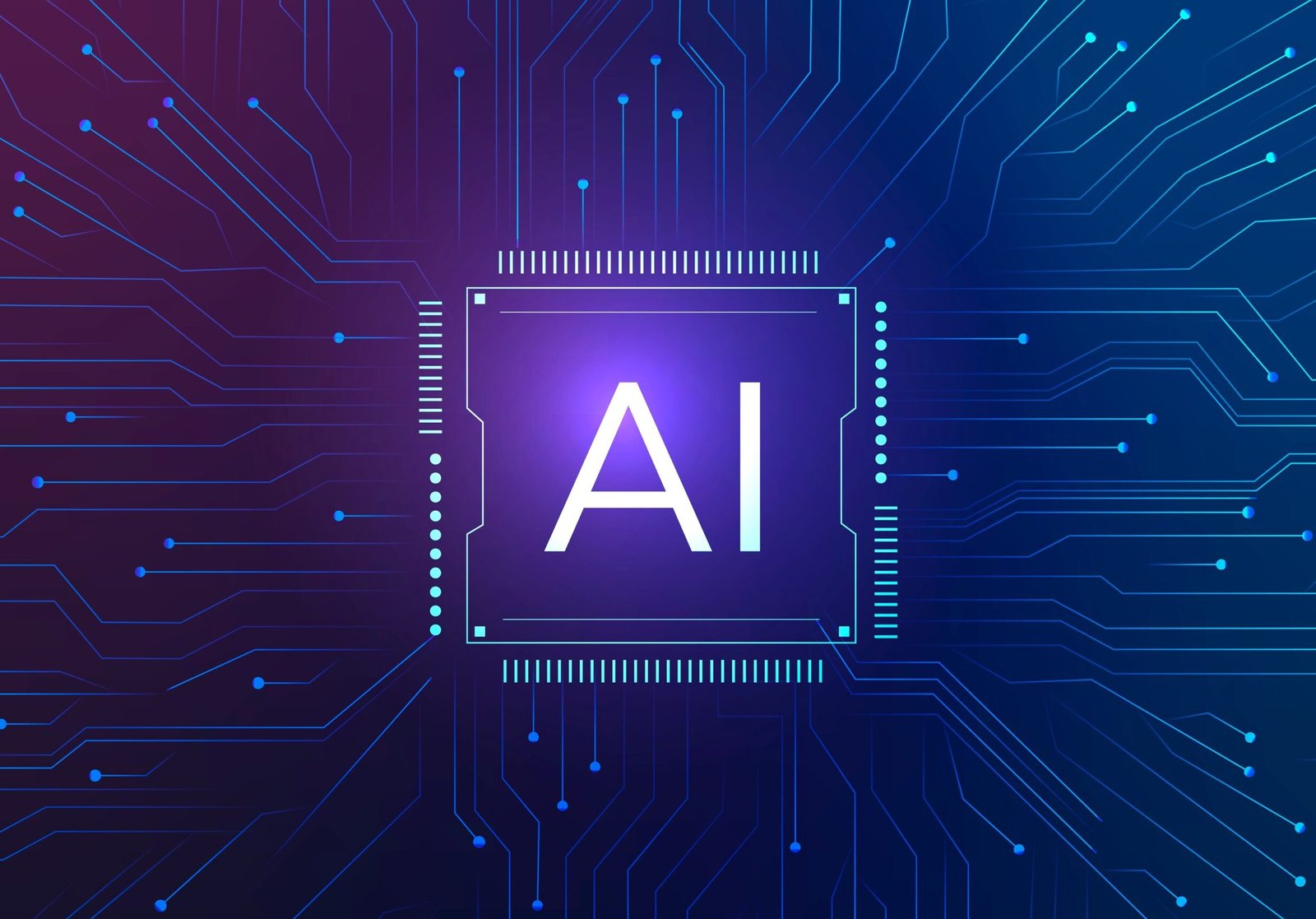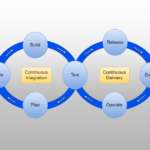Introduction to AI in Modern Business
Artificial Intelligence (AI) has emerged as a transformative force in the modern business landscape, fundamentally altering how companies operate and compete. At its core, AI refers to the simulation of human intelligence processes by machines, particularly computer systems. These processes include learning, reasoning, and self-correction. The concept of AI dates back to the mid-20th century, with early pioneers like Alan Turing and John McCarthy laying the foundational theories and frameworks. Over the decades, advancements in computational power, data storage, and algorithmic design have propelled AI from theoretical exploration to practical implementation.
The historical development of AI has witnessed several pivotal moments, from the invention of the first neural networks in the 1950s to the advent of machine learning algorithms in the 1980s and 1990s. A significant breakthrough came in the 21st century with the rise of deep learning, a subset of machine learning that leverages large datasets and complex neural network architectures. This advancement has enabled unprecedented levels of accuracy and capability in AI systems, leading to their widespread adoption across various industries.
Today, AI is no longer confined to research laboratories but has become an integral part of everyday business operations. Companies are leveraging AI to enhance decision-making processes, improve customer experiences, and drive operational efficiencies. For instance, AI-powered analytics tools provide insights that help businesses understand market trends and consumer behavior, while chatbots and virtual assistants offer personalized customer support around the clock. Additionally, automation driven by AI is streamlining supply chain management and optimizing resource allocation.
The integration of AI into traditional business models is fostering innovation and creating new opportunities. By automating routine tasks, AI allows employees to focus on more strategic and creative endeavors, thereby enhancing productivity and job satisfaction. Furthermore, AI-driven insights are enabling businesses to tailor their products and services more precisely to meet consumer demands, thereby gaining a competitive edge in the market. As we delve deeper into specific applications and benefits of AI in the subsequent sections, it becomes evident that AI is not just a technological advancement but a catalyst for business transformation.
Key Applications of AI in Business
Artificial Intelligence (AI) has become a cornerstone in modern business, driving efficiency, enhancing customer experience, and fostering innovation across various sectors. One prominent application of AI is in customer service, where chatbots and virtual assistants are revolutionizing how businesses interact with customers. Companies like Amazon and Sephora utilize AI-driven chatbots to provide instant support and personalized recommendations, significantly improving customer satisfaction and operational efficiency.
In the marketing domain, AI plays a critical role through personalized recommendations and predictive analytics. Netflix and Spotify leverage AI algorithms to analyze user preferences and behavior, delivering highly tailored content recommendations that enhance user engagement and retention. Additionally, predictive analytics enables marketers to anticipate trends and consumer needs, optimizing campaign strategies and resource allocation. For instance, Coca-Cola uses AI to predict product demand and tailor marketing efforts, leading to more precise and impactful campaigns.
Supply chain management is another area where AI applications are making a significant impact. Through demand forecasting and inventory optimization, AI ensures that businesses maintain optimal stock levels and reduce wastage. For example, Walmart employs AI-driven demand forecasting to accurately predict product demand, adjusting inventory levels accordingly. This not only minimizes stockouts and overstock situations but also enhances overall supply chain efficiency and responsiveness.
In the finance sector, AI has transformed the landscape through fraud detection and automated trading systems. Financial institutions like JPMorgan Chase and PayPal use AI to monitor transactions in real-time, identifying and preventing fraudulent activities with greater accuracy and speed. Moreover, automated trading systems, powered by AI, analyze vast amounts of market data and execute trades at lightning speed, maximizing profits and minimizing risks. Goldman Sachs, for instance, uses AI to optimize trading strategies, resulting in more informed and profitable investment decisions.
These examples illustrate the diverse and transformative applications of AI in business. By harnessing the power of AI, companies across sectors are not only enhancing their operational efficiency but also delivering superior value to their customers. As AI technology continues to evolve, its role in shaping the future of business will undoubtedly expand, offering new opportunities and challenges for organizations worldwide.
Benefits of AI for Businesses
Artificial Intelligence (AI) has become a cornerstone in modern business, offering a multitude of benefits that drive companies towards greater efficiency and innovation. Among the most significant advantages is the marked increase in efficiency and productivity. AI systems can automate routine tasks, which not only reduces the time required to complete these tasks but also minimizes human error. For instance, a report by McKinsey Global Institute indicates that AI can boost productivity by up to 40% in some sectors.
Cost savings are another crucial benefit of integrating AI into business operations. By automating repetitive processes, companies can allocate human resources to more strategic tasks, leading to substantial labor cost reductions. Additionally, predictive maintenance powered by AI can foresee equipment failures, thereby reducing downtime and maintenance costs. General Electric (GE) reported a 20% reduction in maintenance costs by using AI-based predictive analytics.
Enhanced decision-making capabilities are also a key advantage of AI. AI algorithms analyze vast amounts of data to uncover patterns and insights that may not be immediately apparent to human analysts. This data-driven approach allows businesses to make more informed decisions. For example, retail giant Amazon employs AI to forecast demand, optimize inventory, and personalize customer recommendations, significantly boosting their operational efficiency and customer satisfaction.
Improved customer experience is another area where AI shines. AI-powered chatbots and virtual assistants provide instant customer support, resolving queries and issues in real-time, which enhances customer satisfaction and loyalty. A study by Gartner predicts that by 2025, customer service organizations that embed AI in their multichannel platform will elevate operational efficiency by 25%.
Finally, the competitive advantage offered by AI cannot be overstated. Companies that leverage AI technology are often at the forefront of innovation, setting industry standards and outpacing competitors. For instance, Netflix utilizes AI algorithms to personalize content recommendations, which has been pivotal in retaining and expanding its subscriber base.
In essence, the integration of AI into business operations is not merely a technological upgrade but a strategic necessity. The tangible benefits, from increased productivity and cost savings to enhanced decision-making and customer experiences, underscore the transformative potential of AI in fostering a competitive edge in the modern business landscape.
Challenges and Future Outlook of AI in Business
Implementing Artificial Intelligence (AI) in business operations presents several significant challenges. One major hurdle is the need for skilled talent. The integration of AI systems requires a workforce proficient in data science, machine learning, and other specialized areas. However, there is a notable scarcity of professionals with these competencies, leading to a competitive job market and elevated costs for companies seeking to adopt AI technologies.
Data privacy is another critical concern. AI systems often rely on vast amounts of data to function effectively, raising questions about how this data is collected, stored, and used. Businesses must navigate complex regulatory environments and ensure compliance with data protection laws to avoid legal repercussions and maintain consumer trust. This necessitates robust data governance frameworks and continuous monitoring to safeguard sensitive information.
The potential for job displacement is a further consideration. As AI systems become more capable of performing tasks traditionally done by humans, there is a risk of significant workforce disruption. While AI can augment human capabilities and create new job opportunities, it can also render certain roles obsolete. Companies must develop strategies to manage this transition, including retraining and upskilling employees to adapt to new roles within an AI-driven economy.
Ethical considerations also play a pivotal role in AI deployment. Issues such as algorithmic bias, transparency, and accountability are paramount. Businesses must strive to ensure that their AI systems are fair and unbiased, providing equitable outcomes for all stakeholders. This involves implementing ethical guidelines and conducting regular audits to identify and rectify any biases that may arise.
Looking ahead, the future of AI in business is promising, with emerging trends and potential advancements poised to transform industries. Innovations such as explainable AI, which enhances transparency and trust, and edge computing, which enables real-time data processing, are set to drive the next wave of AI adoption. To stay competitive, companies should invest in research and development, foster partnerships with AI technology providers, and cultivate a culture of continuous learning and adaptability.
By addressing these challenges and preparing for future advancements, businesses can harness the full potential of AI to drive growth, efficiency, and innovation in the modern business landscape.



